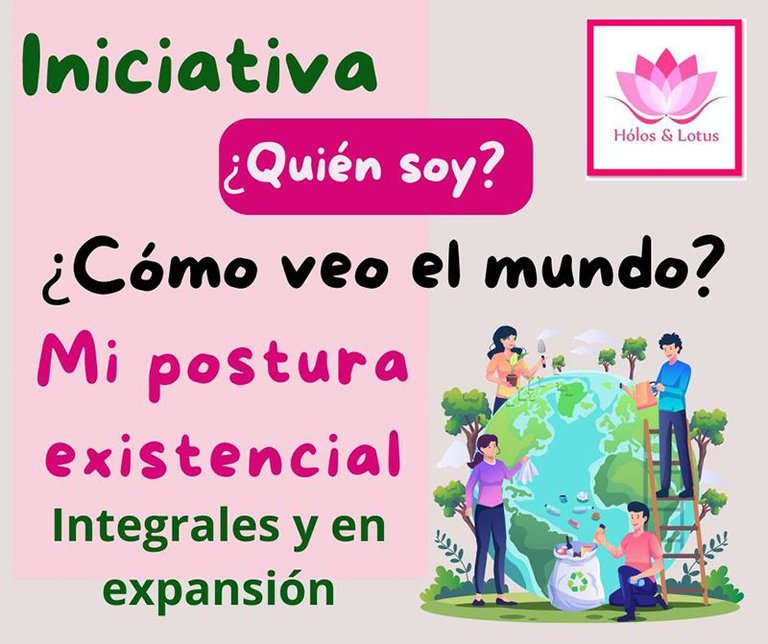
Saludos amigos de Holos-Lotus, deseándoles una semana llena de bendiciones y de mucho provecho. Hoy, en el capítulo número 10 de la serie ¿Quién soy?, seguimos profundizando en la postura existencial y nos vamos a adentrar en nuestra percepción del mundo.
Cuando hablamos del mundo, posiblemente nos encontremos con una concepción tan amplia y abarcadora que se convierte en una abstracción a la que le otorgamos vida propia y hablamos de él como si tuviese un poder de decisión para ser como es, tal vez olvidando que el mundo es lo que es porque las personas, tu, yo, nosotros, lo hemos hecho así.
Pero hoy no se trata de que hablemos de esa pequeña cuota de responsabilidad que tenemos en ello, sino de cómo lo percibimos y cómo percibimos a la gente que lo habita y lo hace posible.
Mientras trato de centrar la idea de la postura existencial con respecto al mundo, me viene a la mente el viejo tango “Cambalache” que popularizó Joan Manuel Serrat.
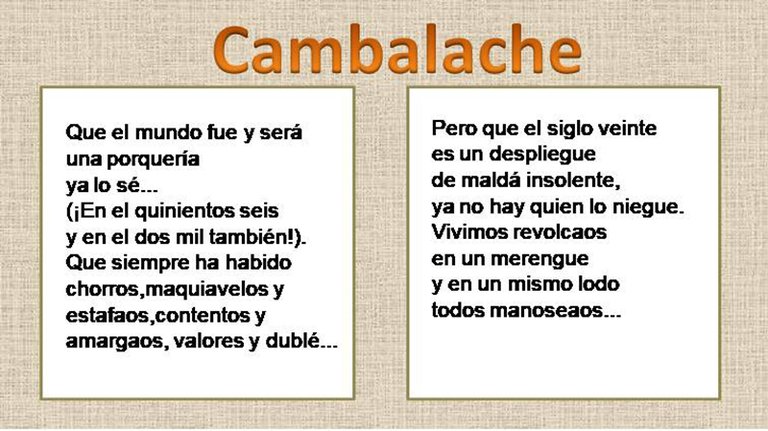
¡Qué fuerte!, mientras busco la letra y escucho la pieza, la percepción es más cruda y me voy preguntando: ¿el mundo es y está así? Sin negar lo existente, mi postura se recoge en una frase que se ha popularizado: “Los buenos somos más”, con sus posibles matices.
Las posturas existenciales no nacen de la noche a la mañana, son construcciones que vamos realizando desde las vivencias y la familia siempre será el núcleo originario de ellas, por eso al revisar nuestras posturas es oportuno preguntarnos: ¿Qué escuché de niño?, ¿Qué decían mis abuelos, mis padres, tíos, y demás personas cercanas? ¿Cuáles filtré y cuáles han permanecido?
De mi abuela paterna, por ejemplo, escuché, que el mundo estaba lleno de gente mala, sobre todo los hombres, que no dejásemos que se nos acercaran, que no confiásemos en nadie. De mi mamá, aunque no generalizaba sobre el mundo y las personas, su mensaje estuvo enmarcado en el que nos cuidásemos, en que nos protegiéramos unas a las otras (las cuatro hermanas).
En ambos mensaje está instalado el miedo y la desconfianza hacia el otro, aunque en mi mamá había cierta incoherencia entre lo que decía y hacía, en el sentido que en muchísimas oportunidades abrió las puertas de su hogar a personas desconocidas porque sentía que lo necesitaban, es decir, consideraba que “el mundo”, las personas, eran confiables.
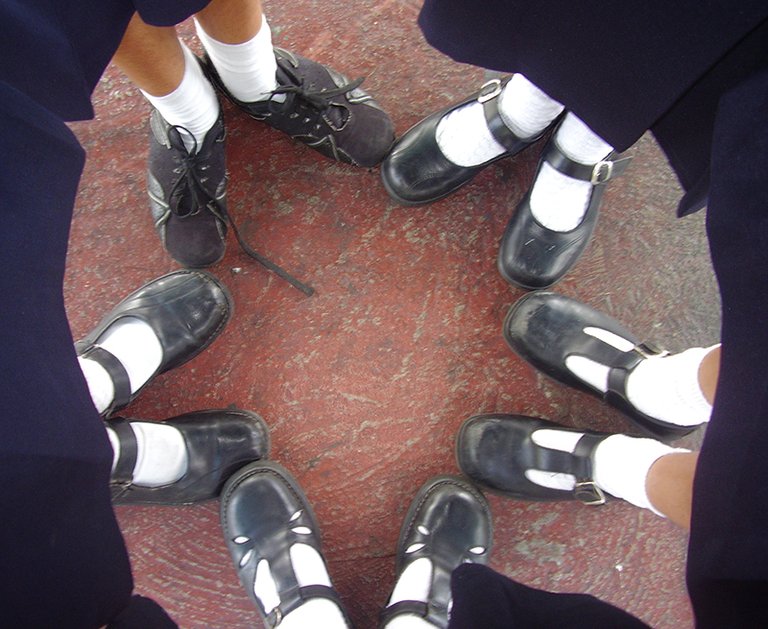
Moviéndome entre posturas, yo tiendo a creer y a confiar en el otro. He aprendido a no generalizar, a incluirme en los juicios que emito. Creo en la dualidad de lo existente, pero también en la transitoriedad, en los matices y más cuando hablamos de lo humano, donde es posible reconocer que en cada uno de nosotros hay claridad y oscuridad, aunque sea de pensamientos.
Me parece que “el mundo” tiene sus cosas bellas, y feas; puras e impuras; limpias y sucias, alegres y tristes, pobreza y riqueza, justicia e injusticia, En cada una de ellas hay niveles… Es el que tenemos, lo que hemos creado y aunque no es perfecto ¡Cómo me gusta ser parte de él!

Para ti, ¿Cómo es el mundo?
Recuerda
-Seguir las normas de publicación de la comunidad.
-Rebloguea, si es de tu gusto, para que más personas participen.
-Utiliza la etiqueta #consciencia.

In English

How do I see the world?
Greetings friends of Holos-Lotus, wishing you a week full of blessings and much profit. Today, in chapter number 10 of the Who am I? series, we continue to deepen our existential posture and we are going to delve into our perception of the world.
When we talk about the world, we may find ourselves with such a broad and encompassing conception that it becomes an abstraction to which we give it a life of its own and we talk about it as if it had a power of decision to be the way it is, perhaps forgetting that the world is what it is because people, you, me, us, have made it that way.
But today it is not about us talking about that small share of responsibility we have in it, but about how we perceive it and how we perceive the people who inhabit it and make it possible.
As I try to focus on the idea of the existential position with respect to the world, the old tango “Cambalache” popularized by Joan Manuel Serrat comes to mind.

How strong, as I look for the lyrics and listen to the piece, the perception is cruder and I ask myself: is the world like this and is it like this? Without denying what exists, my stance is reflected in a phrase that has become popular: “We, the good ones, are more”, with its possible nuances.
Existential positions are not born overnight, they are constructions that we make from our experiences and the family will always be the original core of them, so when reviewing our positions it is appropriate to ask ourselves: What did I hear as a child, what did my grandparents, my parents, uncles, and other people close to me say, which ones did I filter and which ones have remained?
From my paternal grandmother, for example, I heard that the world was full of bad people, especially men, that we should not let them get close to us, that we should not trust anyone. From my mother, although she did not generalize about the world and people, her message was framed around taking care of ourselves, protecting each other (the four sisters).
In both messages there is fear and distrust of others, although in my mother there was a certain incoherence between what she said and what she did, in the sense that on many occasions she opened the doors of her home to strangers because she felt they needed it, that is, she considered that “the world”, people, were trustworthy.

Moving between positions, I tend to believe and trust each other. I have learned not to generalize, to include myself in the judgments I make. I believe in the duality of the existing, but also in the transience, in the nuances and more when we talk about the human, where it is possible to recognize that in each of us there is clarity and darkness, even if it is of thoughts.
It seems to me that “the world” has its beautiful and ugly things, pure and impure, clean and dirty, happy and sad, poverty and wealth, justice and injustice, in each of them there are levels... It is what we have, what we have created and although it is not perfect, how I like to be part of it!

For you, what is the world like?
Remember
-Follow the community posting guidelines.
-Reblog, if you like, so that more people can participate.
-Use the hashtag #awareness.

Translated with www.DeepL.com/Translator (free version)
Fuente de imágenes: Archivo personal



MIS REDES SOCIALES

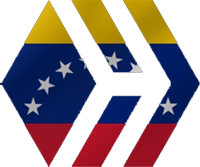
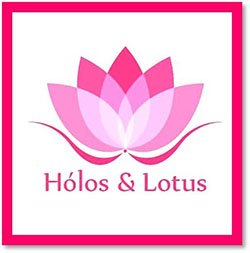



Be Entrepreneur



Hola aniga @damarysvibra, tenia mucho tiempo sin estar por aqui, pero como siempre consigo temas muy interesantes de los cuales me interesa participar. Espero hacerlo pronto☕🥰❤️
Saludos a todos.
Este tema es muy interesante, las distintas visiones de un mismo mundo.
Por cierto, me gusta mucho el tango, y cambalache enmarca muchisimas visiones de este extraño mundo en el cual habitamos.
Acá mi visión personal y familiar.
https://peakd.com/hive-131951/@issymarie2/quien-soy-como-veo-al-mundomi-vision-del-mundo-una-paleta-de-colores-esp-eng
Congratulations @damarysvibra! You have completed the following achievement on the Hive blockchain And have been rewarded with New badge(s)
Your next target is to reach 16500 replies.
You can view your badges on your board and compare yourself to others in the Ranking
If you no longer want to receive notifications, reply to this comment with the word
STOPSaludos, por aquí mí participación.
https://hive.blog/hive-131951/@mariperez316/quien-soy-como-veo-el
@tipu curate 8
Upvoted 👌 (Mana: 0/75) Liquid rewards.
Hola, @damarysvibra
La felicito por tan acertada serie de iniciativas centradas en el autodescubrimiento: ¿Quién soy? Esta en particular, muy buena, pues hace que vislumbres tus paradigmas.
Aquí le dejo mi participación:
https://peakd.com/hive-131951/@janaveda/que-como-veo-al-mundo-bello-y-peligroso-spa-eng
Saludos.
Qué tema tan amplio y con el cual tanta gente puede expresar sus concepciones y evaluarlas.
Recibe mis bendiciones. Me alegro mucho, @damarysvibra
Saludos amiga. Aquí dejo mi entrada en tan interesante iniciativa en su ejercicio #10:
https://hive.blog/hive-131951/@elpastor/quien-soy-10-como-veo-el-mundo-or-or-esp-eng
Saludos a todos. En el siguiente enlace encontraran mi participación:
https://peakd.com/hive-131951/@germanandradeg/cada-quien-con-el-mundo
Hola amigos, un placer saludarles 🌹, esta es mi participación https://ecency.com/hive-131951/@brujita18/mi-mundo-un-mundo-de
Ojalá la autoayuda y esa filosofía, tan mainstream y popular, tuviera algo de lo que has escrito en este post. Tienes talento, @damarysvibra . For real, love
Hola, las cosas no son como son , son como somos. El mundo es como yo lo veo, cada quien tiene su percepción, "cada cabeza es un mundo."
@damarysvibra Este es otro tema tan complejo para abordar, pero muy interesante,voy a estar atenta a las muchas respuestas, porque a mí personalmente me interpela ese mundo, soy yo? O son ellos? , mucho que pensar y mucho que decir, Nos leemos, Saludos 🤗
Hola!
Por acá les dejo mi participación
Tengan un feliz presente https://hive.blog/hive-131951/@esthersanchez/quien-soy-10-como-veo-el-mundo
De lo simple a lo complejo califico este ejercicio que ya va por la décima temporada y todavía falta mucho por descubrir.
Cada semana espero para ver qué tema nos trae en este ejercicio de autoconocimiento y la verdad es que siempre me sorprende. Gracias por todo. Feliz jornada. Salud y saludos.
Saludos, aquí dejo mi participación en tan interesante iniciativa:
https://inleo.io/@yaslenysofia/cmo-veo-el-mundo-donde-convive-lo-bueno-y-lo-malo-espeng-9uh
Esta es mi participación
https://peakd.com/hive-131951/@getheenspring/tuyo-o-nuestro-una-postura-ante-el-mundo
Hola, esta es mi participación:
https://peakd.com/hive-131951/@s-alvarez/como-veo-el-mundo-or-how-do-i-see-the-world-esp-eng
Les saludo amigos, aqui dejo el enlace a mi participación:
https://hive.blog/hive-131951/@argeh/quien-soy-10-como-veo-el-mundo-esp-eng
Interesante temática que me permite exponer mis opiniones, conocer las de los demás e intercambiar. Muchas gracias por la excelente idea. Les comparto mi post. Saludos
https://ecency.com/hive-131951/@felpach/el-mundo-desde-mi-ventana
Hola querida @damarysvibra, no podia perderme el participar en esta bella iniciativa. por acá dejo mi entrada, gracias por el espacio de reflexión https://peakd.com/hive-131951/@aly.squid/dibujando-y-desdibujando-el-mundo-espanol-ingles
Saludos amigos de la comunidad, estimada @damarysvibra me encanta la iniciativa, a continuación mi participación: https://peakd.com/hive-131951/@cautiva-30/como-veo-el-mundo-o-a-quienes-lo-hacen-posible-or-how-i-see-the-world-or-those-who-make-the-world-possible
Que interesane propuesta, es bueno siempre pensar en estos temas, porque eso determina como nos relacionamos con la sociedad en general. Estaré realizando mi participación. Bonito día @damarysvibra